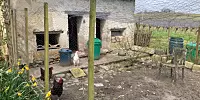When and why are French farmers threatening new national protests
Not all unions are in agreement with proposed action
The calls for more protests come less than a year after major blockades across France
Franck Legros/Shutterstock
Farming unions in the south of France have called for more protest action in the next few weeks, just days after a protest in Occitanie, and less than a year after national blockades in Paris and nationwide.
Unions including the FNSEA and the Jeunes Agriculteurs are jointly calling for “a resumption of action from November 15”. Feelings are particularly heightened in the Provence-Alpes-Côte-d'Azur region, where farmers feel that their situation has dramatically worsened.
Read also: Farmer protests intensify in south-west France
It comes after farmers protested in January and February 2024, staging numerous blockades to protest against their declining incomes, and what they describe as a “lack of action” from the government.
They also believe that much of the progress they may have made at the start of the year has been “halted and put on ‘stand by’’ by the dissolution” of parliament, which was called unexpectedly by President Macron over the summer, said Laurent Depieds, President of the FRSEA PACA, to France 3.
He said that the previous government had begun making “changes in the right direction”, including on fuel, micro-farms, and capital gains on farm transfers. But the arrival of the new Agriculture Minister, Annie Genevard, has required farmers to “start explaining things all over again”, he said.
He added that while Ms Genevard appears to be “listening”, no action has yet been forthcoming. “We're still waiting for proof from the new minister,” said Mr Depieds.
Read also: Will farmer roadblocks return? French union angered by lack of action
The union leader My Depieds, an aromatic farmer, said that “everyone in the region” (an estimated 19,000 farmers in the PACA region) had been affected by dropping purchasing power and a slowdown in the economy. He said that prices for his lavandin essential oil have “collapsed by 30%”.
Other sectors, including in fruit and vegetable production, have found that their “growing costs have rocketed”, and that inflation in the costs of raw materials and wages is “eating away at producers’ margins”, Mr Depieds added.
This has been added to the impact of frost and floods, reduced yields, and consumer prices that are being kept artificially low “under pressure from international markets” and European trade agreements. Many farmers are suffering from a 20-40% reduction in income, he said.
“The farming world is sick,” he said.
Among the FNSEA’s demands are “administrative simplification” and “a reduction in environmental standards”, which Mr Depieds claims are hurting French agriculture on the global stage.
“The cry of farmers who want to be able to make a decent living from their profession has still not been heard,” he said.
Read also: Travel disrupted around France as farmers blockade Paris and Lyon
Read also: Farmers plan more motorway blockades, claims French protest leader
Wolf attacks ‘the last straw’
Some farmers have said that attacks of livestock by wolves is the “last straw”, said Laurent Dubost, general secretary for the Bouches-du-Rhône region of farming union Coordination Rurale.
He believes that priority is being given to environmental causes over farmer livelihoods, and is calling for “visibility and a clear direction” from the government.
Read also: Confirmed: animal spotted in Gironde, south-west France, is a wolf
Union disagreements
There is disagreement among unions. For example, Mr Dubost joined la Coordination Rurale after leaving Jeunes Agriculteurs (JA), as he felt that the latter was “too close to the government” and “too favourable to international free trade agreements”.
And while the Coordination Rurale is still calling for action along with the FNSEA and JA, another union, the Confédération Paysanne disagrees, and believes that their method of action could risk the public and government losing sympathy for farmers.
“I don't think that burning down prefectures will change anything,” said Benjamin, a market gardener in Provence.
Spokesperson for the Confédération Paysanne in the Bouches-du-Rhône region, and livestock farmer, François Borel, confirmed that his “non-violent” organisation does not wish to join the FNSEA's ultimatum.
Mr Borel has even suggested that “the FNSEA has already achieved everything they wanted” after protests at the start of the year, and said that further protests are against the more environmentally-friendly stance taken by his union. He said that, for example, calls for the “lowering of environmental standards” are not on the right side of history.
“Unlike the FNSEA, we want agriculture to reform from the top down, without damaging the environment,” said Mr Borel.




























